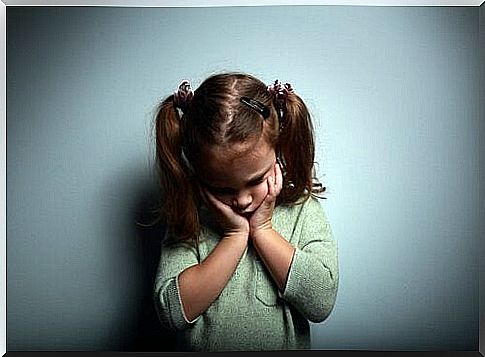Growing Up With Emotionally Absent Parents

There are many reasons why some parents decide to abandon their children. How many suppressed emotions can those children have as a result of having parents who are emotionally absent? Why does a mother find it necessary to make up special lies about the father who left them in order to protect the emotions of her children?
Other than their physical presence, emotionally absent parents contribute nothing to the education of their children. They leave all authority, emotional support, and responsibilities to their partners. They act like “indirect” parents. The psychological absence they cause can inflict emotional wounds on their child.
These parents harm their children by not setting rules or by creating a negative image of the father figure or the mother figure. Growing up with a mother or father who is present but unable to give love and attention leaves the child with an empty heart. After all, at that moment the child learns to build his world.
What if they want to escape me?
A kindergarten teacher noticed that a girl in her class was strangely sad and lost in her thoughts.
“What are you thinking, child?” she asked.
The little girl replied, “ My parents! Dad works all day so I can eat and go to one of the best schools in town. He even works extra hours so I can go to college one day. And my mom cooks every day, she cleans, washes the clothes and goes to the store so I don’t have to worry about anything.”
“So what’s the problem?” asked the teacher.
“ I’m afraid they want to escape me,” the girl replied.

The consequences of growing up with parents who are emotionally absent
Some children grow up with parents who are emotionally absent. These children are more likely to develop behavioral problems. Usually, these problems are a shield that children use to protect themselves from their deepest feelings of abandonment, fear and insecurity.
This type of upbringing usually also involves emotional detachment. It makes the child more insecure about building new relationships. There is also a lack of confidence.
The idea of developing an emotional bond with someone is then accompanied by the fear of being betrayed. They are afraid of not being recognized or even worse, of feeling ignored.
Their relationships as adults
All of these deficiencies can cause children to become emotionally dependent adults. These adults cannot end the relationships that hurt them. They are afraid of feeling lonely and abandoned. So they choose to cling to people even when it’s not right. This is better for them than losing someone again.
Children who grow up with emotionally absent parents also tend to form toxic relationships with other people. They have a desperate need to find love and a father or mother figure. These children can then end up in unhealthy and toxic social environments and not know how to get out.
In addition, they also tend to always feel hostility when trying to interact with others. They also have that feeling towards themselves. They are also usually defensive. This is undoubtedly one of many consequences for children whose parents are emotionally absent.
You’re here but it feels like you’re miles away
Some parents have no choice but to be away from home and away from their children. Yet it is still possible to establish that vital emotional connection. It is important that parents devote the free time they have to their children. After all, the bond between parent and child is the most important connection in every person’s life.

It is therefore necessary that parents forget about paying the bills for a while at those times. During that free time, they should not think about shopping or other things so that they can raise their children emotionally.
It is fundamental that the parents remain connected with their children. They can take advantage of the moments such as eating together or playing together.
There are many activities that do not require too much time. You can teach your kids to cook or take them for a walk or to the park. Everything will depend on the quality of the time and the bond you build with them as a parent.








